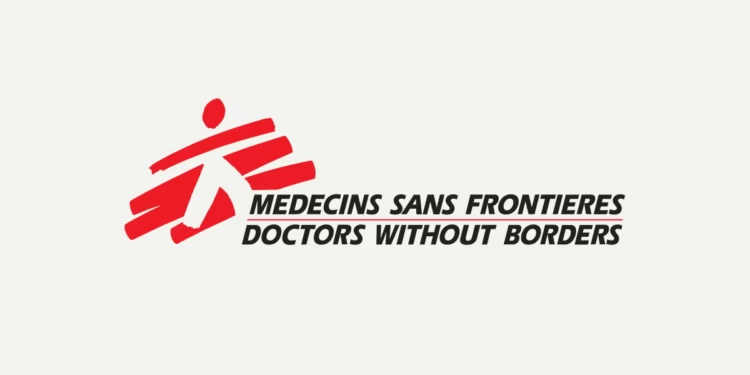What happens when over half of the population in Africa and Asia lacks access to essential medicines, leaving one in four people worldwide without the medical care they need? This staggering reality prompts a critical question: how can organizations like Doctors Without Borders, a medical humanitarian organization, bridge the gap in healthcare accessibility and provide vital medical aid to those affected by conflict, epidemics, or disasters? As a non-profit doctors organization, Doctors Without Borders plays a crucial role in delivering emergency medical care to underserved populations globally.
With millions facing life-threatening health risks due to limited access to effective medicines, the work of medical humanitarian organizations like Doctors Without Borders is more critical than ever. By providing essential medical care worldwide, Doctors Without Borders aims to address the significant disparities in healthcare accessibility, making a tangible difference in the lives of those who need it most, and upholding the principles of a medical humanitarian organization, while non-profit doctors work tirelessly to save lives.
Overview of Doctors Without Borders
Doctors Without Borders, also known as Médecins Sans Frontières (MSF), is a global healthcare organization that provides emergency medical aid to people affected by conflict, epidemics, disasters, or exclusion from healthcare. With a presence in over 70 countries, MSF employs over 69,000 staff members from 169 nationalities, making it a diverse and global response team.
The organization’s mission is to provide medical care to those who need it most, regardless of their background or circumstances. This is reflected in their vision of creating a world where everyone has access to quality medical care. As a result, MSF has become a leading provider of global healthcare, with a strong focus on delivering emergency medical aid to areas of need.
Mission and Vision
At the heart of MSF’s work is a commitment to independence, neutrality, and impartiality. These core values guide the organization’s response to humanitarian crises, ensuring that aid is delivered based on need, rather than political or economic interests. By working with volunteer doctors and other medical professionals, MSF is able to provide critical care to people in crisis situations.
Historical Background
Founded in 1971, MSF has a long history of providing medical care to people in need. From its early days as a group of 13 doctors and journalists, the organization has grown into a global network of medical professionals and support staff. Today, MSF is a leading provider of global healthcare, with a strong focus on delivering emergency medical aid to areas of need.
Core Values
MSF’s core values of independence, neutrality, and impartiality are reflected in its approach to delivering medical care. By working with volunteer doctors and other medical professionals, MSF is able to provide critical care to people in crisis situations, regardless of their background or circumstances. This approach has earned MSF a reputation as a leading provider of global healthcare, and a trusted partner in the delivery of emergency medical aid.
Global Reach of the Organization
As a leading international healthcare organization, Doctors Without Borders has a significant presence in over 70 countries worldwide. The medical humanitarian organization provides emergency medical aid to people affected by conflict, epidemics, disasters, or exclusion from healthcare. With a strong commitment to delivering medical care to those who need it most, non-profit doctors and other medical professionals work in a variety of settings, including conflict zones, refugee camps, and urban slums.
The organization’s global reach is a testament to its dedication to providing medical care to people in need, regardless of their location or circumstances. By working in countries around the world, Doctors Without Borders is able to respond quickly and effectively to emergency situations, providing critical medical care and support to those who need it most. As a non-profit organization, it relies on the support of private donors and foundations to continue its work, making it a truly global and independent medical humanitarian organization.
Countries Served
Doctors Without Borders has a significant presence in countries across the globe, including those in Africa, Asia, Europe, and the Americas. The organization’s work in these countries is focused on providing medical care to people affected by conflict, epidemics, and other crises, as well as supporting local healthcare systems and providing training to local medical professionals.
Emergency Responses
In addition to its long-term programs, Doctors Without Borders also provides emergency medical aid to people affected by crises such as natural disasters, conflicts, and epidemics. The organization’s emergency response teams are trained to respond quickly and effectively to these situations, providing critical medical care and support to those in need.
Medical Services Provided
Doctors Without Borders provides a range of medical services, including primary healthcare, surgical interventions, and mental health support, to address the diverse needs of populations affected by crises. The organization’s medical teams are trained to respond to various medical emergencies, including trauma, infectious diseases, and maternal and child health, offering critical emergency medical aid.
With over 50 years of experience in disaster response, Doctors Without Borders operates in more than 75 countries worldwide, delivering global healthcare to those who need it most. Volunteer doctors and medical professionals play a crucial role in the organization’s efforts, providing essential medical care to people affected by conflict, displacement, or other crises.
The organization’s mental health support services are also vital, as many patients report experiencing high levels of anxiety, flashbacks, and sleep disturbances due to conflict-related stressors. By providing equitable access to healthcare, Doctors Without Borders aims to address the medical needs of the most at-risk populations, including those living in precarious conditions, such as poverty, armed conflict, and mass displacement.
Access to healthcare is a fundamental human right, and it is our duty to ensure that everyone, regardless of their background or circumstances, receives the medical care they need.
Through its medical services, Doctors Without Borders strives to make a positive impact on the lives of people affected by crises, providing them with the emergency medical aid and support they need to survive and recover.
Humanitarian Crisis Response
As a medical humanitarian organization, Doctors Without Borders provides emergency medical care to people affected by humanitarian crises, including natural disasters and armed conflicts. The organization’s non-profit doctors and international healthcare organization teams are trained to respond quickly and effectively to these crises, providing essential medical care to those in need.
In response to humanitarian crises, the organization’s emergency medical teams provide a range of services, including primary healthcare, surgical interventions, and mental health support. The organization’s international healthcare organization teams work to ensure that medical care is delivered to those who need it most, regardless of their background or circumstances.
Natural Disasters
The organization’s medical humanitarian organization teams have responded to numerous natural disasters, including earthquakes, hurricanes, and floods. In these situations, the organization’s non-profit doctors and international healthcare organization teams work to provide emergency medical care, including surgical interventions and primary healthcare.
Armed Conflicts
The organization’s medical humanitarian organization teams have also responded to armed conflicts, providing emergency medical care to those affected by the conflict. The organization’s international healthcare organization teams work to ensure that medical care is delivered to those who need it most, regardless of their background or circumstances.
Refugee Support
In addition to responding to natural disasters and armed conflicts, the organization’s medical humanitarian organization teams also provide support to refugees and displaced people. The organization’s non-profit doctors and international healthcare organization teams work to provide essential medical care, including primary healthcare, surgical interventions, and mental health support, to those in need.
Volunteer Opportunities
Doctors Without Borders, a medical humanitarian organization, relies on volunteer doctors and non-medical professionals to deliver essential medical care and humanitarian aid. Each year, the organization sends thousands of professionals overseas to work alongside locally hired staff, providing lifesaving medical assistance to people who would otherwise be denied access to healthcare.
As a non-profit doctors organization, MSF offers a range of volunteer opportunities, including roles for medical professionals, such as doctors, nurses, and midwives, as well as non-medical support positions, like logisticians and administrators. To apply, individuals must meet certain criteria, including a strong commitment to the organization’s mission and values, as well as relevant skills and experience.
Roles for Medical Professionals
Volunteer doctors and nurses play a crucial role in organizing mass vaccination initiatives and triaging displaced people fleeing conflict. They also deliver thousands of babies and save thousands of mothers’ lives each year.
Non-medical Support Positions
Technical logisticians and health promoters are vital for ensuring operational efficiency and addressing a wide range of health issues, including sexual violence care and Ebola prevention.
Application Process
To apply to volunteer with MSF, individuals must submit an application, which will be processed according to the organization’s criteria. With opportunities available for volunteer doctors and non-medical professionals, MSF provides a chance to make a difference in the lives of people affected by conflict, epidemics, and natural disasters.
Funding and Donations
As a non-profit organization, Doctors Without Borders relies on donations from individuals, foundations, and governments to fund its medical care and humanitarian aid. The international healthcare organization provides medical care in more than 70 countries worldwide, making it a leading medical humanitarian organization. Donations can be made in various ways, including one-time contributions ranging from $50 to $1,000, or monthly donations ranging from $10 to $90.
The importance of public support cannot be overstated, as it allows the organization to maintain its independence and neutrality. This is crucial for a medical humanitarian organization, as it enables them to deliver medical care to those who need it most, regardless of their background or circumstances. Unrestricted funds allow the organization to allocate resources efficiently to the greatest needs, making it a vital component of their funding model.
Transparency and Accountability
Doctors Without Borders is committed to transparency and accountability, with regular audits and evaluations to ensure that its funds are being used effectively and efficiently. The organization recognizes the trust that donors have placed in them and strives to be responsible stewards of the resources they receive. As a result, 100% of donations made are tax-deductible, and donors can receive a donation receipt for one-time donations within 3-4 weeks via mail, and online donations are confirmed via email within one hour.
By supporting Doctors Without Borders, donors are enabling the organization to provide emergency medical care where it’s needed most. The foundation of support from donors enables the organization to operate in over 70 countries globally, making it a leading international healthcare organization. Donations directed to specific programs or countries can be earmarked, although unrestricted funds allow for more effective resource allocation, allowing the non-profit doctors to provide care to those who need it most.
Challenges Faced by Doctors Without Borders
As a medical humanitarian organization, Doctors Without Borders faces numerous challenges in providing global healthcare to those in need. One of the primary concerns is access to care, as the organization’s medical teams often work in difficult and dangerous environments, including conflict zones and refugee camps. Non-profit doctors and medical staff risk their lives to deliver essential medical care, but security risks and resource limitations can hinder their efforts.
The organization has faced operational restrictions, leading to limited access to certain regions. For instance, MSF has been expelled from regions like Niger due to governmental restrictions. Additionally, the number of patients treated by MSF has increased significantly, emphasizing the impact of operational constraints on their ability to deliver aid. As a result, the medical humanitarian organization must navigate these challenges to provide effective global healthcare.
Access to Care
Access to care is a significant challenge, particularly in conflict zones and areas with limited resources. The organization’s medical teams must often work in difficult conditions, with limited access to equipment and personnel. Despite these challenges, non-profit doctors and medical staff continue to provide essential medical care to those in need.
Security Risks
Security risks are another major concern, as MSF’s staff and patients may be targeted by armed groups or other actors. The organization has faced numerous attacks on its facilities, including airstrikes and kidnappings. These security risks can limit the organization’s ability to provide global healthcare and force them to withdraw from certain areas.
Resource Limitations
Resource limitations, including funding and personnel constraints, can also limit the organization’s ability to respond to medical emergencies and deliver long-term medical care. Despite these challenges, Doctors Without Borders continues to work tirelessly to provide essential medical care to those in need, making it a leading medical humanitarian organization in the field of global healthcare.
Impact Measurement
As a leading international healthcare organization, Doctors Without Borders/Médecins Sans Frontières (MSF) is committed to measuring the impact of its medical care and humanitarian aid. With the help of volunteer doctors and other medical professionals, the organization provides essential services to those in need. MSF’s commitment to transparency and accountability ensures that its impact measurement is rigorous and independent.
MSF uses a range of tools, including case studies and patient testimonials, to assess the effectiveness of its programs. For example, in response to the COVID-19 surge in Brazil, MSF teams provided critical care, including oxygen treatment, to patients in need. Similarly, in the Democratic Republic of Congo, MSF responded to the eruption of Mount Nyiragongo by providing services for cholera prevention and treatment. As a medical humanitarian organization, MSF’s work has a significant impact on the lives of people around the world.
Effectiveness of Programs
MSF’s programs have been shown to be highly effective in providing medical care and humanitarian aid. In 2023, over 80% of the organization’s funds were allocated to medical projects and advocacy work, with approximately 5% spent on administration costs. The organization’s efforts have resulted in significant outcomes, including 756,200,000 litres of water distributed to affected populations and 462,200 families receiving distributions of relief items.
Partnerships and Collaborations
As a medical humanitarian organization, Doctors Without Borders (MSF) recognizes the importance of partnerships and collaborations in delivering global healthcare. By working with international organizations, local governments, and academic institutions, MSF is able to leverage resources, expertise, and knowledge to provide high-quality medical care to those who need it most.
MSF’s partnerships with organizations like the United Nations and the World Health Organization enable the organization to respond to global health crises and advocate for policies that support its mission. For example, CREDO Mobile, a US-based mobile phone company, has donated over $1.6 million to MSF since 1992, demonstrating the impact of partnerships between non-profit doctors and for-profit organizations. These collaborations not only provide financial support but also help to raise awareness about the importance of global healthcare and the work of medical humanitarian organizations like MSF.
International Organizations
MSF’s partnerships with international organizations allow the organization to tap into a global network of expertise and resources. This enables MSF to respond quickly and effectively to emergencies, providing medical care and humanitarian aid to those affected. By working together, MSF and its partners can achieve more than they could alone, making a greater impact in the lives of people around the world.
Local Governments
MSF also partners with local governments to deliver medical care and humanitarian aid that is tailored to the specific needs of local communities. By working with local authorities, MSF is able to build trust and establish effective relationships, ensuring that its programs are sustainable and effective. This approach not only improves health outcomes but also helps to strengthen local health systems, making them more resilient and better equipped to respond to future crises.
Academic Institutions
Finally, MSF partners with academic institutions to advance research and innovation in the field of global healthcare. By working together, MSF and its academic partners can develop new treatments, improve medical protocols, and enhance the overall quality of care provided to patients. This collaboration not only benefits MSF but also contributes to the broader field of global healthcare, helping to address some of the world’s most pressing health challenges.
Advocacy and Awareness Efforts
As a medical humanitarian organization, Doctors Without Borders plays a crucial role in raising public awareness about medical and humanitarian crises. The organization’s advocacy efforts focus on promoting policies that support its mission and values, particularly in areas where access to medical care is limited. Volunteer doctors and other medical professionals are essential to these efforts, providing critical care and support to those in need.
The international healthcare organization engages in various activities to raise awareness and promote policy change. This includes working with governments, international organizations, and local communities to develop and implement policies that support access to medical care. By doing so, Doctors Without Borders aims to address the root causes of medical and humanitarian crises, rather than just treating the symptoms.
Raising Public Awareness
Through its advocacy and awareness efforts, Doctors Without Borders seeks to educate the public about the importance of access to medical care, particularly in conflict zones and other areas where medical care may be limited. The organization’s work as a medical humanitarian organization is critical to promoting health and well-being, and its advocacy efforts help to ensure that those in need receive the care they require.
Future Initiatives
As a leading medical humanitarian organization, Doctors Without Borders is committed to expanding its services and developing innovative healthcare solutions to respond to emerging medical and humanitarian crises. The organization’s future initiatives include expanding its services to new countries and regions, as well as developing new programs and services to respond to emerging health threats, such as pandemics and climate change.
Expanding Services
Doctors Without Borders is actively responding to the COVID-19 pandemic in over 70 countries, with a focus on supporting health authorities in COVID-19 care, protecting vulnerable populations, and maintaining essential medical services. The organization is also working to reduce its carbon emissions by at least 50% by 2030, in line with its commitment to reducing the environmental impact of its emergency medical projects.
Innovative Healthcare Solutions
The organization is investing in research and development to improve its medical care and humanitarian aid, with a focus on global healthcare and non-profit doctors. This includes developing new treatments and technologies to respond to emerging health threats, as well as improving its emergency response capabilities.
Preparing for Emerging Threats
Doctors Without Borders is preparing for emerging threats, including climate change and pandemics, by developing new programs and services to respond to these crises. The organization is working to improve its ability to respond quickly and effectively to emerging crises, while also reducing its environmental impact and improving its overall sustainability.
How to Get Involved
For those inspired by Doctors Without Borders’ mission to provide essential medical care worldwide, there are several ways to get involved and support the organization’s efforts. One of the most impactful ways to contribute is through financial donations, which help fund the organization’s critical medical services and humanitarian aid programs in over 70 countries. Individuals can donate directly on the Doctors Without Borders website, or participate in fundraising initiatives to rally community support.
In addition to monetary contributions, volunteering your time is another meaningful way to get involved. Doctors Without Borders relies on a dedicated network of volunteer medical professionals, including physicians, nurses, and surgeons, who are willing to commit a minimum of 9 to 12 months for international assignments. Non-medical volunteers can also play a vital role in areas like logistics, administration, and advocacy. The application process involves screening, interviews, and onboarding to ensure volunteers are well-prepared for the challenges of working in diverse and often challenging environments.
Finally, one of the most valuable ways to support Doctors Without Borders is by spreading awareness about the organization’s work and the pressing humanitarian crises it addresses. By sharing the organization’s mission and stories of its impact, individuals can help build a broader base of public support, which is essential for the international healthcare organization to continue delivering critical medical humanitarian aid to those who need it most.
FAQ
What is the mission and vision of Doctors Without Borders?
The mission of Doctors Without Borders is to provide medical care to people who are affected by conflict, epidemics, disasters, or exclusion from healthcare. The organization’s vision is to create a world where everyone has access to quality medical care, regardless of their background or circumstances.
When was Doctors Without Borders founded and how has it grown?
Doctors Without Borders has a history dating back to 1971. The organization has grown into a global organization with operations in over 70 countries around the world.
What are the core values of Doctors Without Borders?
Doctors Without Borders’ core values include independence, neutrality, and impartiality, which guide its work in delivering medical care to those who need it most.
What countries and regions does Doctors Without Borders serve?
Doctors Without Borders has a global reach, with operations in over 70 countries around the world. The organization provides emergency medical aid to people affected by conflict, epidemics, disasters, or exclusion from healthcare, as well as running long-term programs to provide medical care to people affected by chronic diseases.
What types of medical services does Doctors Without Borders provide?
Doctors Without Borders provides a range of medical services, including primary healthcare, surgical interventions, and mental health support. The organization’s medical teams are trained to respond to a variety of medical emergencies, including trauma, infectious diseases, and maternal and child health.
How does Doctors Without Borders respond to humanitarian crises?
Doctors Without Borders is known for its rapid response to humanitarian crises, including natural disasters, armed conflicts, and refugee crises. The organization’s emergency medical teams are trained to respond to a variety of crises, and it also provides support to refugees and displaced people, including food, shelter, and sanitation services.
What volunteer opportunities are available with Doctors Without Borders?
Doctors Without Borders offers a range of volunteer opportunities, including roles for medical professionals, such as doctors, nurses, and midwives, as well as non-medical support positions, such as logisticians, administrators, and communications specialists. The organization’s volunteer application process is designed to ensure that its volunteers are well-prepared to work in a variety of settings.
How is Doctors Without Borders funded?
Doctors Without Borders is a non-profit organization that relies on donations from individuals, foundations, and governments to fund its medical care and humanitarian aid. The organization is committed to transparency and accountability, with regular audits and evaluations to ensure that its funds are being used effectively and efficiently.
What challenges does Doctors Without Borders face in its work?
Doctors Without Borders faces a range of challenges in its work, including access to care, security risks, and resource limitations. The organization’s medical teams often work in difficult and dangerous environments, and security risks are a major concern. The organization’s resource limitations, including funding and personnel constraints, can also limit its ability to respond to medical emergencies and deliver long-term medical care.
How does Doctors Without Borders measure the impact of its work?
Doctors Without Borders is committed to measuring the impact of its medical care and humanitarian aid. The organization uses a range of tools, including case studies, patient testimonials, and program evaluations, to assess the effectiveness of its programs. This data-driven approach ensures that the organization’s funds are being used effectively and efficiently.
What partnerships and collaborations does Doctors Without Borders have?
Doctors Without Borders partners with a range of organizations, including international organizations, local governments, and academic institutions, to deliver its medical care and humanitarian aid. These partnerships allow the organization to respond to global health crises and advocate for policies that support its mission.
How does Doctors Without Borders raise awareness and advocate for its cause?
Doctors Without Borders is committed to raising public awareness about the medical and humanitarian crises it responds to, as well as advocating for policies that support its mission. The organization’s advocacy and awareness efforts include raising public awareness about the importance of access to medical care and engaging in policy advocacy to develop policies that support its mission and values.
What are Doctors Without Borders’ future initiatives?
Doctors Without Borders is committed to expanding its services and developing innovative healthcare solutions to respond to emerging medical and humanitarian crises. The organization’s future initiatives include expanding its services to new countries and regions, as well as developing new programs and services to respond to emerging health threats, such as pandemics and climate change.
How can individuals get involved with Doctors Without Borders?
There are many ways to get involved with Doctors Without Borders, including making a donation, volunteering your time, and spreading awareness about the organization’s work. Donations from individuals, foundations, and governments are essential to the organization’s ability to deliver medical care and humanitarian aid to those who need it most.





